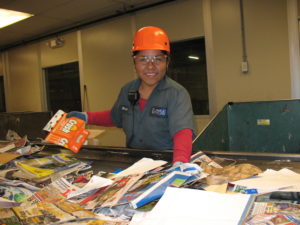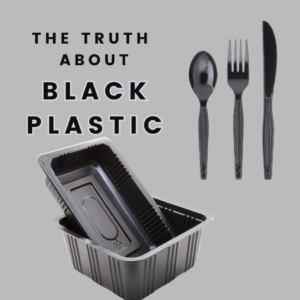At Eureka, while we hold a clear and bold vision for a world without waste, we use our on-the-ground experience to advocate for tangible, real-world solutions to better manage our resources, reduce waste, support local economies, and build healthy, equitable communities. One of these zero waste policy solutions is the digital right to repair legislation – HF1337, sponsored by Representative Fischer.
On Wednesday, February 15th, the House Commerce Finance and Policy Committee took up the issue. The legislation would give consumers and independent repair shops access to repair manuals and other documentation, as well as tools and parts, that authorized repairers already have access to.
Operationally, we have first-hand experience with the barriers created when we cannot fix our own equipment. This happens most often with our materials handling equipment like forklifts, loaders, and skid steers. When simple repairs are needed, like replacing a joystick or a fuel filter, we are unable to utilize our in-house mechanics. Instead, we need to wait about 2 weeks for a special tech to come out, pull out their laptop, and recalibrate the machine. Or, in some cases, the tech needs to use special diagnostic equipment to identify a very simple and, what should be, inexpensive solution. This not only creates an additional cost for the outside labor, but it also impacts our productivity. We fall behind while we wait for the tech, trying to reassign staff to other tasks.
As a zero waste organization, we also see even greater systems need for this legislation. Manufacturers have made it difficult to repair devices and equipment, and replacing them is often an easier and less expensive solution for consumers. This cycle creates two major adverse environmental impacts. First, it significantly increases the mining and procurement of precious raw materials needed for producing electronics using energy-intensive technologies. Second, discarded devices and equipment create large quantities of electronic waste. If not disposed of properly, toxins from e-waste enter the soil and water, raising concerns about water pollution, soil pollution, and more.
Manufacturers have provided residents with fewer and fewer viable ways to keep older electronics and crucial equipment functioning effectively. If Minnesotans could more easily repair their own devices, appliances, and farming equipment, they would not have to replace them as frequently, reducing reliance on the resource-intensive production process and cutting down on electronic waste.
Right to repair is a critical step toward a more sustainable economy in Minnesota. To learn more about the right to repair, check out the webinar from our partners at ReuseMN.
Share this story

Tour Eureka Recycling’s Upgraded Facility on May 31!
Ever wondered what happens to your recyclables after they leave your curb? Join us at Eureka Recycling’s Community Tour Day

Eureka Recycling Celebrates 20 Years and Facility Upgrade
This Earth Day, we are proud to celebrate two major milestones:two decades of pioneering mission-driven materials processing and the launch

Ditching Black Plastic
Black plastics are bad news. They’re toxic, and they’re not recyclable. So why are we still using them for

We Need Action on Electronic Waste
Residents across Minnesota need free and equitable access to electronics and battery recycling. Take Action Now. Legislation enacted in 2007
